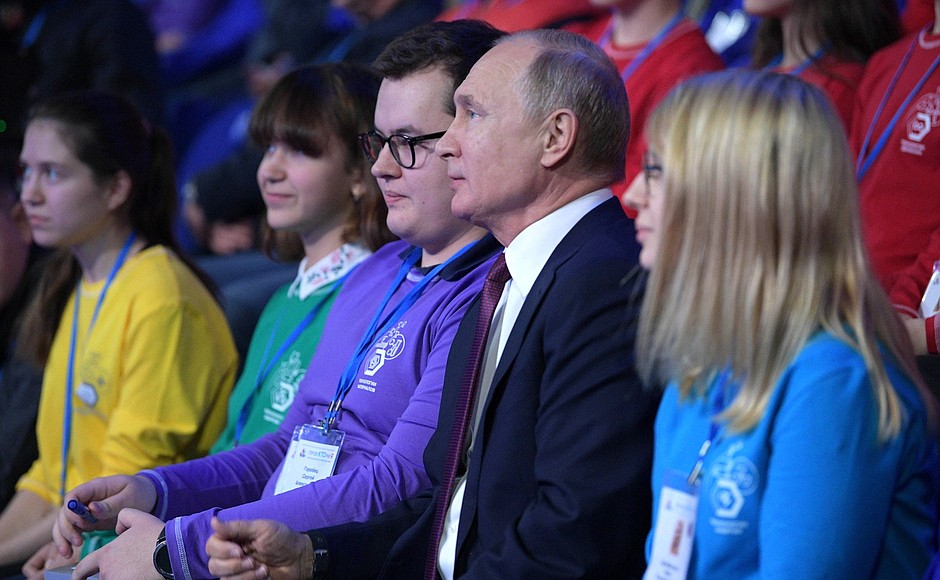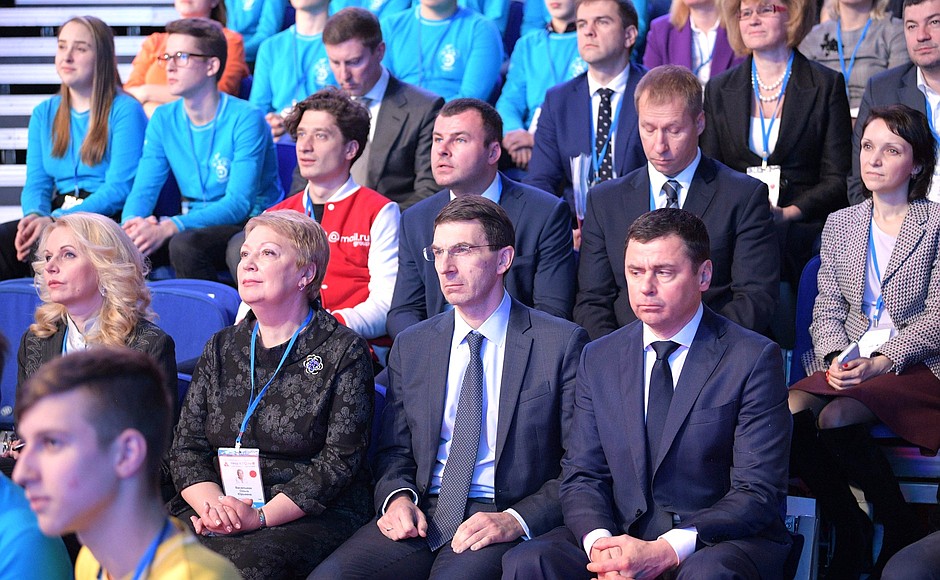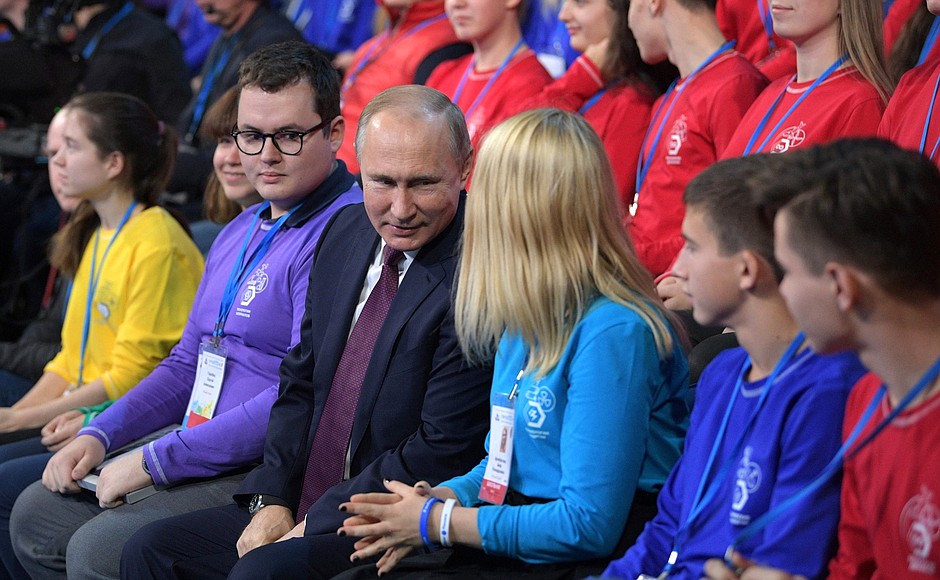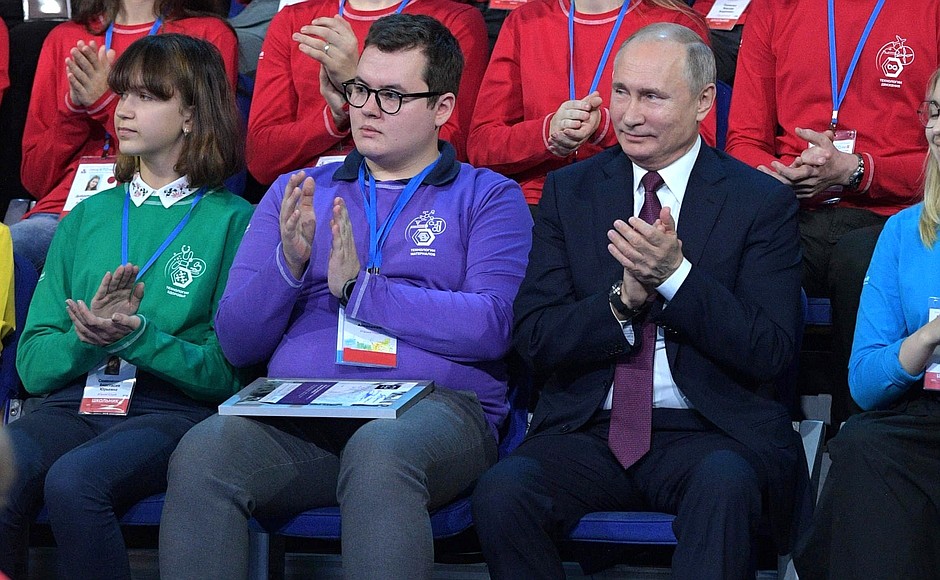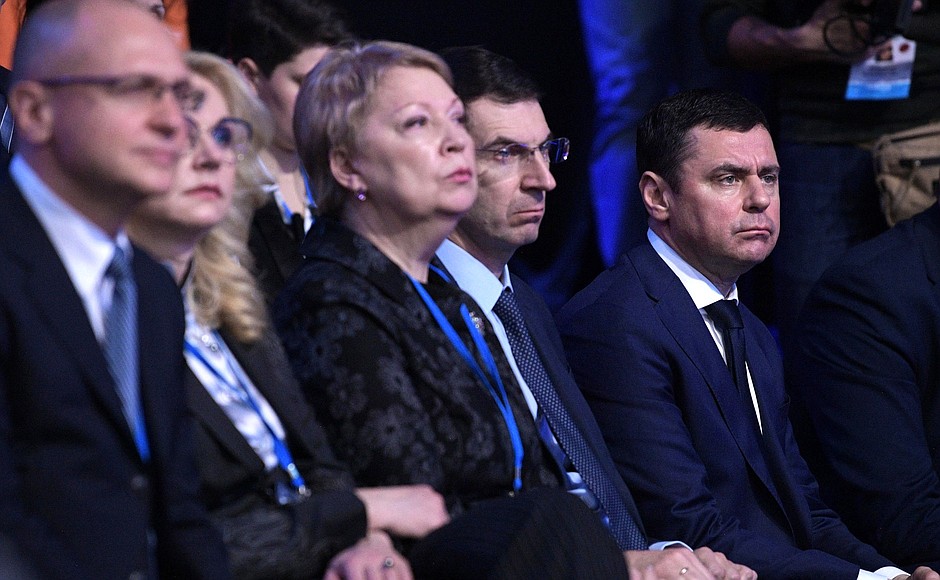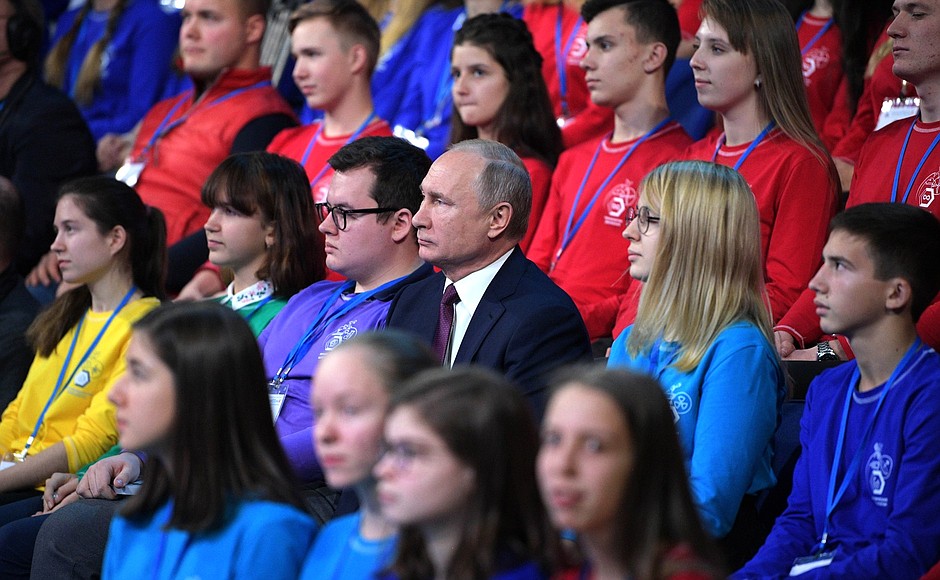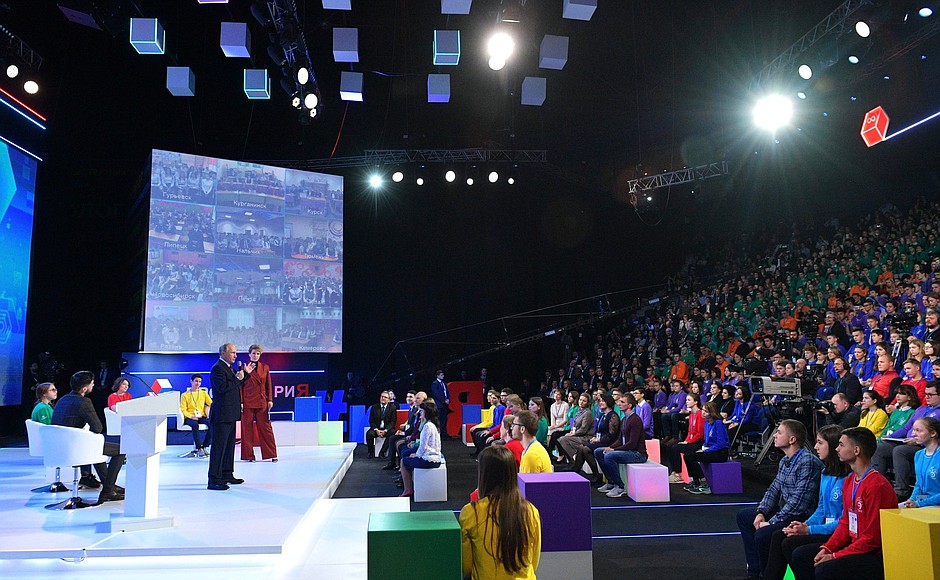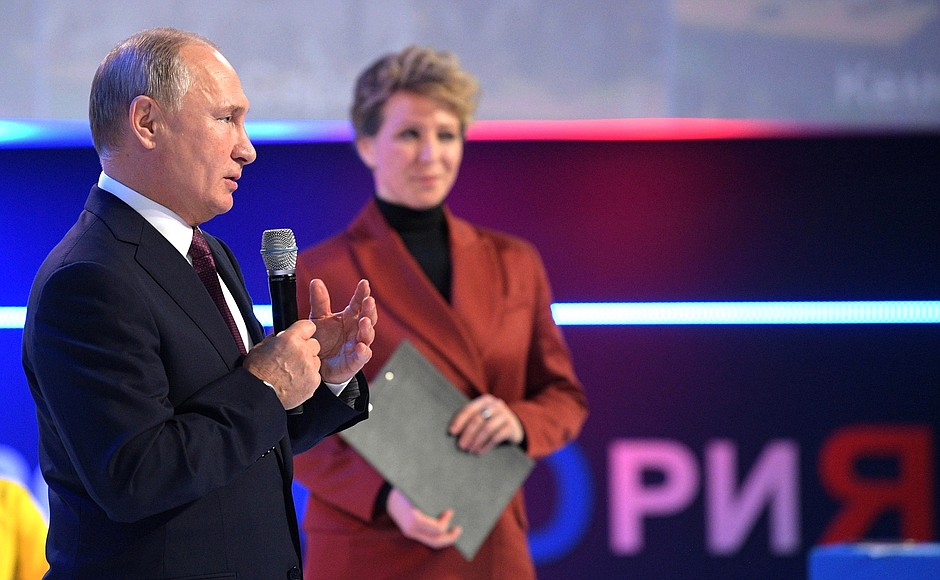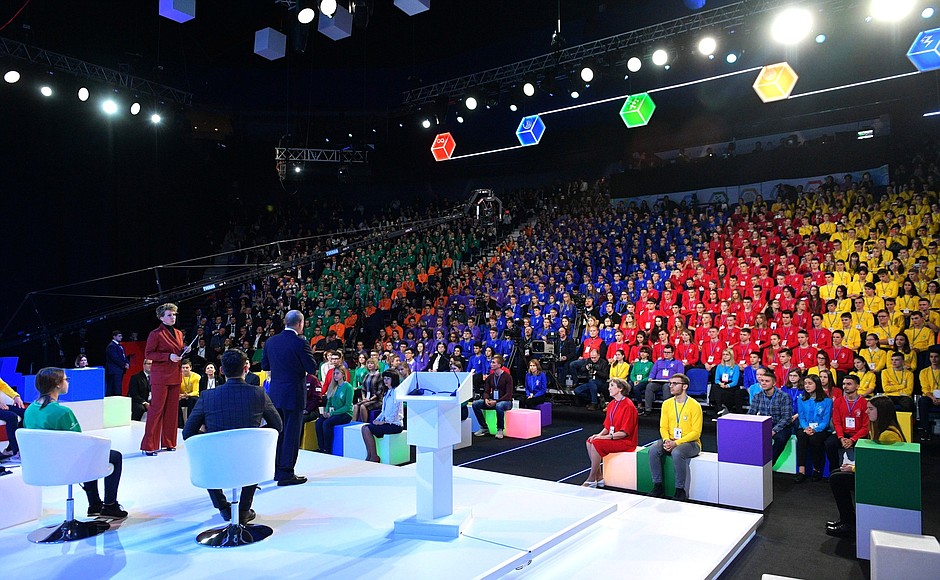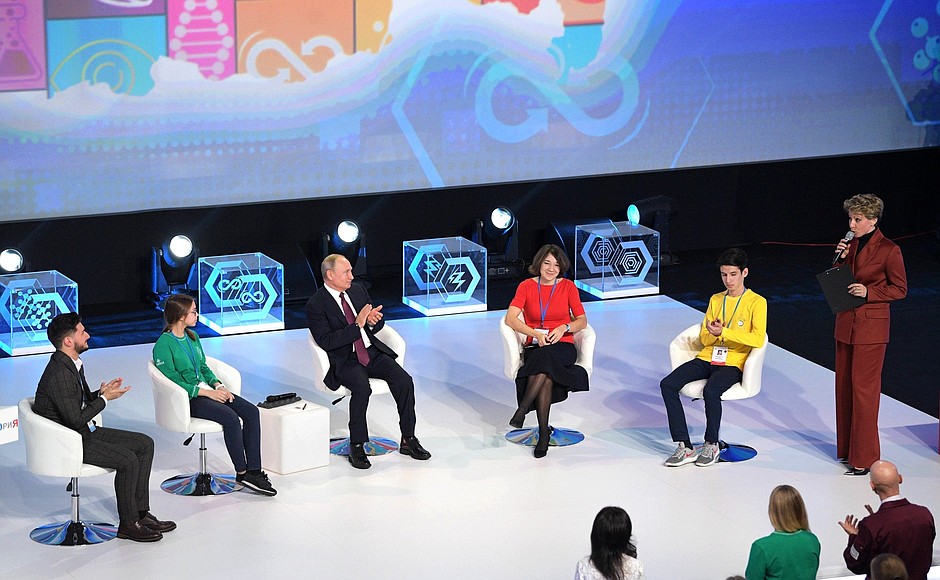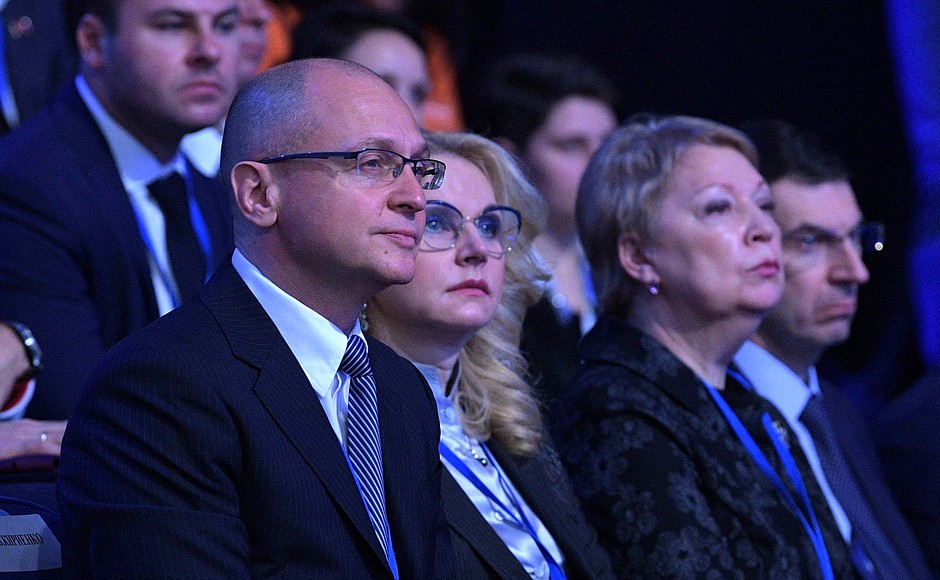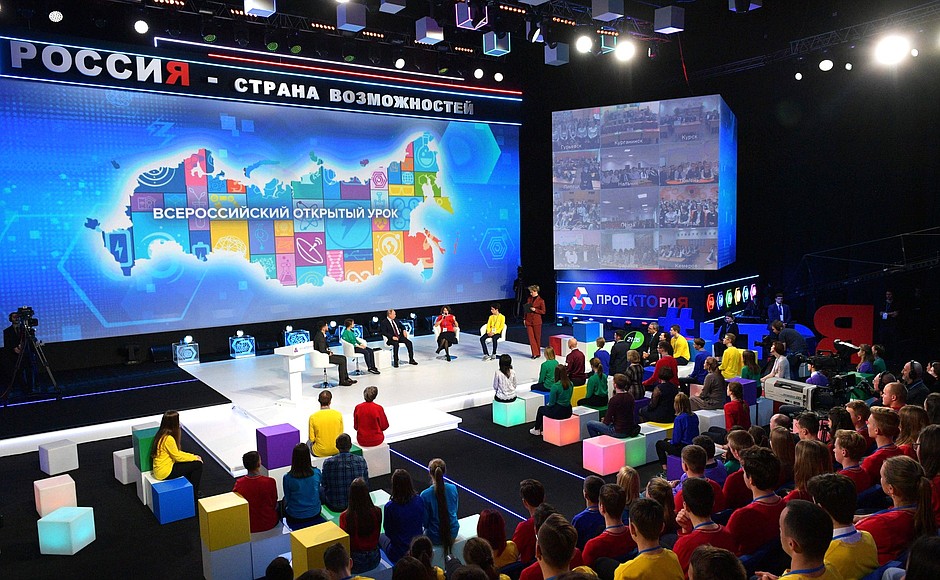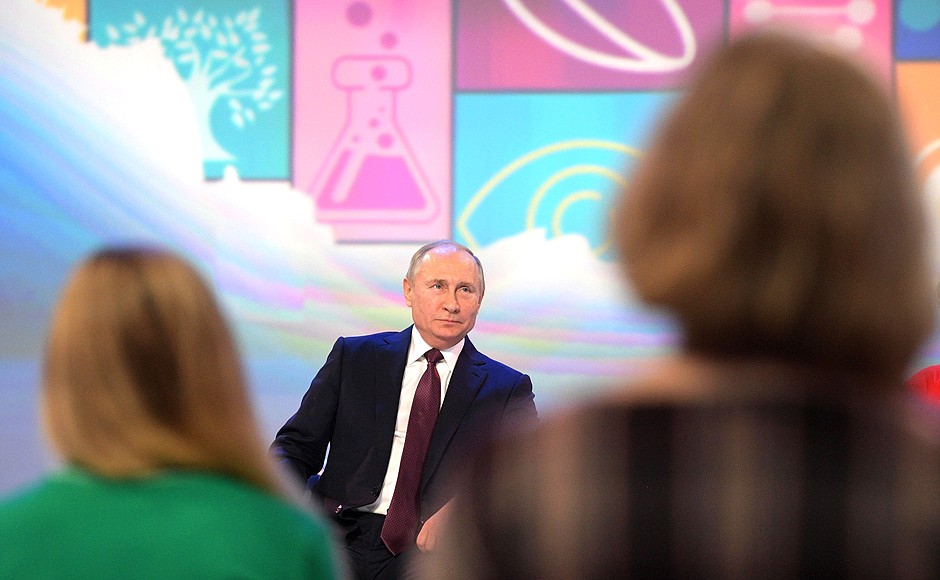Over 500 school students and teachers from all over Russia are attending the forum this year. The main themes include energy, transport, health, space, IT and new materials.
School children who won in competitions on solving practical challenges and teachers who created the best career guidance lessons took part in the discussion at the Breakthrough Directions open lesson. The live stream was watched by about six million pupils at 20,000 Russian educational institutions.
There also were live video feeds from regional schools.
Tomsk pupils gave a presentation on the Quantorium children’s technological park where they study engineering and address important regional tasks.
Schoolchildren from Novgorod and Nizhny Novgorod spoke about the features of the Ticket to the Future project dedicated to early career guidance for pupils in years 6–11.
Participants in the finals of the International Contest for Children’s Engineering Teams described the contest during a live feed from St Petersburg.
The videoconference with Rostov-on-Don pupils concerned the My First Business contest.
* * *
President of Russia Vladimir Putin: Good afternoon.
We are attending an event that is described as an open lesson. It is not a lesson for me, and it is not a lesson or instruction for you. I see this as an opportunity for all of us. For me, it is an opportunity to meet with you and your peers from many Russian regions, to learn about your ideas and your plans for the future. For you, it is an opportunity to step into the spotlight. Indeed, people will be looking at you. I am sure that millions are watching you online right now, and this number will increase manifold during the reruns.
Last year – we met here a year ago – one million people watched your forum online. This year we expect an audience of six million people. There were 10 million hits. I think there will be many more this year, at least six times more, that is, 60 million hits. This is what we expect.
Therefore, I believe it is important for you not only that I hear what you have to say, but that you are heard by people across the country who are working in the spheres of interest to you. It is extremely important that there are things that interest you. In fact, it is vitally important to correctly choose the direction for moving towards your bright and, I hope, happy and productive future.
Our host was speaking about a rapidly changing world. Of course, this may sound as a cliché, but it is also true, because the speed of change is gathering momentum.
I spoke about this with other audiences, but I think it proper to say this here as well. The world is at a stage of complex, tectonic change on a global scale. The change is tectonic because it concerns new technology. We are living in the age of a technological revolution. A new technological culture is in the making.
What does this mean for the world and for us? It implies changes everywhere. Not only in technology itself, because technological changes are immediately followed by other developments. I will try to explain what I mean.
First, we are entering the age of the digital revolution and a digital economy. Second, this provides the basis for the development of artificial intelligence and offers new opportunities in the sphere of self-driving vehicles, while new achievements in biology and genetics will help cure diseases and increase life expectancy, which has been growing faster in Russia than in many other countries, including industrialised ones.
And what does this lead to? To new living conditions for the people.
Here is a concrete example. More and more people are now telecommuting and working part-time from home. It is necessary to ensure their rights. This area remains almost unregulated in our labour laws.
With the introduction of digital technology, a great number of workers will become redundant. What are we supposed to do with them? There may be not hundreds of thousands, but millions of people who will no longer work at traditional workplaces. Therefore, we need to think in advance of how to ensure their rights, and what kind of employment the state will find for these people. This means we need to think in advance about retraining them.
Our country is the world’s largest in terms of territory. We have countless natural resources. There are other natural competitive advantages as well. However, such a vast territory and other advantages notwithstanding, there are matters that require our special attention. With 146 million people, we are the largest country in Europe in terms of population. Germany comes second with 80 million, that is, the difference is big. But we are not the leaders worldwide. The population of the United States, I believe, is already 350 million, and there are large states in Latin America as well. I am not even talking about Asia, where there are countries with a billion and more people.
You know, this matters, because it affects the economy overall. The overall economy in purchasing power parity is an important component not only per capita, but also in the total size, because it enables the state to concentrate resources in the most important areas.
What does this new technological revolution give us? It gives us the opportunity to maintain leadership where we held it for a long time, and to gain new competencies where they will be needed for future development. This already eliminates or reduces risks because we are not the leaders in terms of population. If we have brains, and if we are able to use them properly, we will be able to retain leadership in such industries as space exploration, nuclear energy, materials science and many more, and to acquire new competencies. We will not just manage to jump onto the last carriage of this departing train of technological revolution, but will remain a leader in areas where we are a leader now and acquire new competencies in order to become a leader in other areas.
But this will happen only if people of your age, with the help of your teachers, figure out in time what to focus on. In general, finding your vocation is the most important thing. This is the first step to success.
If you love what you do, you will come out on top. Of course, it largely depends on your teachers. I want to humbly thank them and bring this profession to everyone’s attention. This is a very important profession, which deserves special respect and gratitude.
I would very much like to have an exchange of views during our conversation today, so that I could see what your interests are (I want to conclude my opening remarks where I started), and you could present your proposals and ideas to the broader public and dedicated experts in the areas of your focus.
We are allocating more resources to support young people’s creative efforts. This year we allocated about 5 billion rubles. This is a fairly large amount of money, much larger than in previous years. Of course, this is not the kind of money that will allow you to realise all your projects. This state support will give you an opportunity to make a name for yourself and to take the first step. I want it to be an auspicious one for you.
I wish you all the best.
